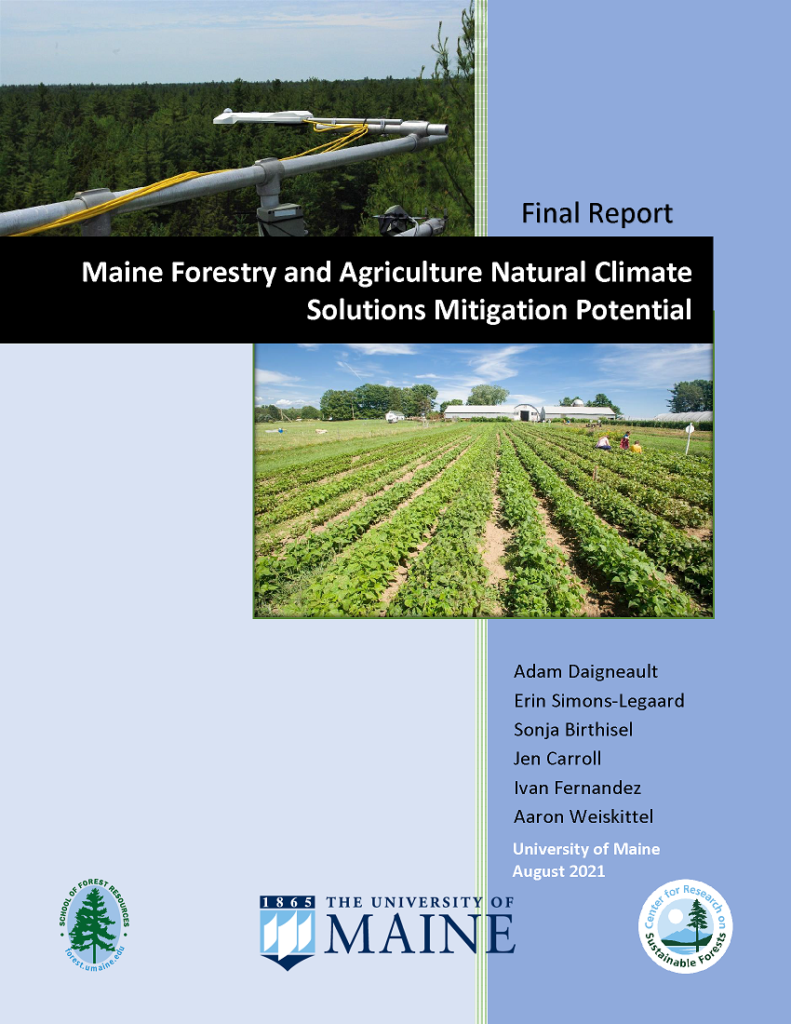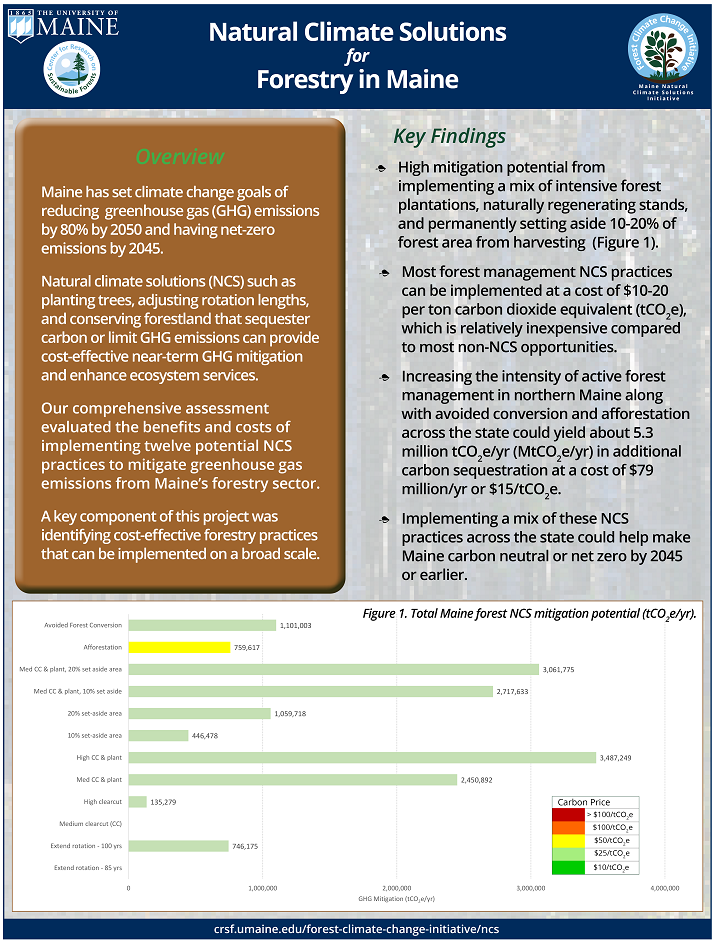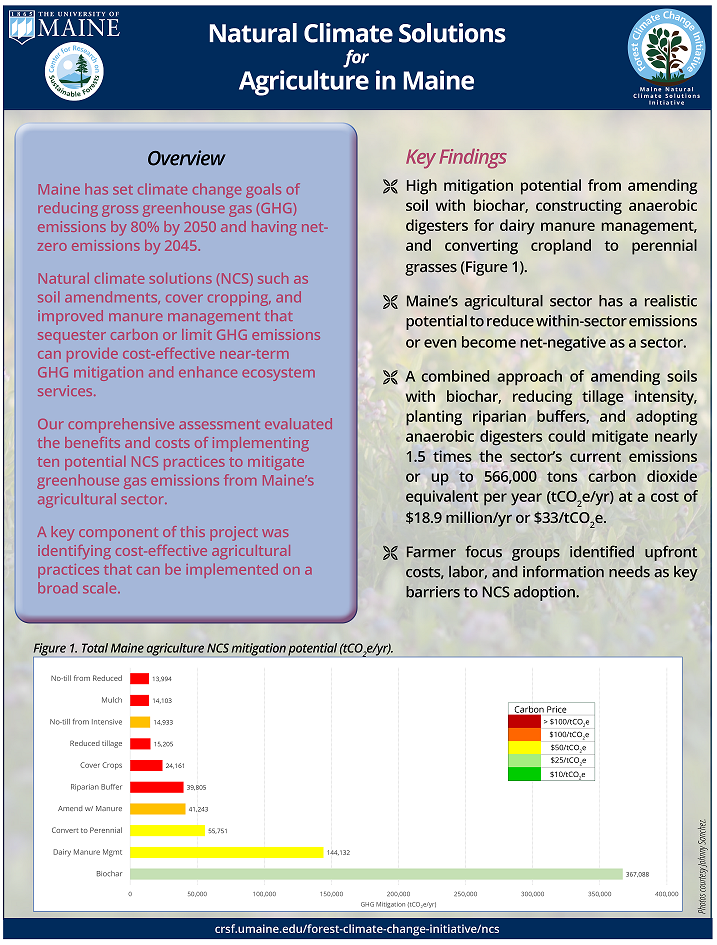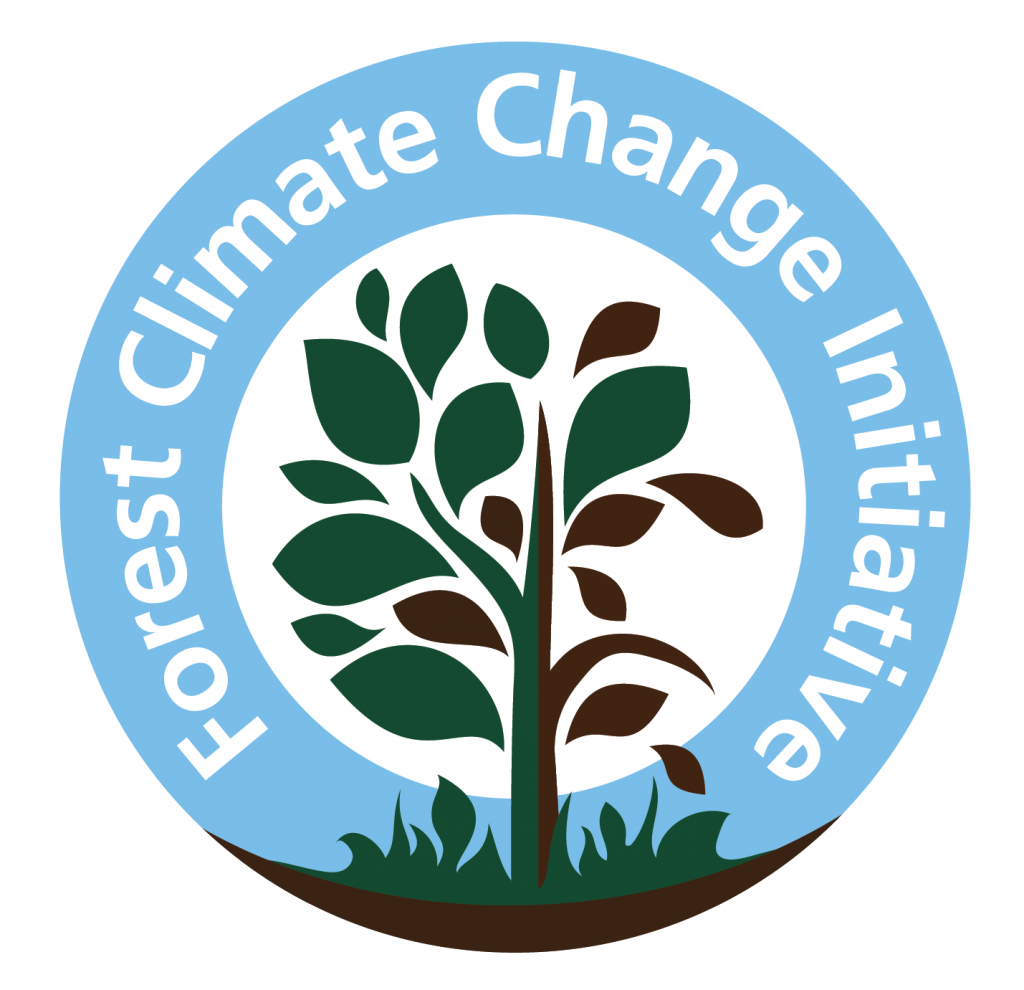Forest Climate Change Initiative
Maine’s Forest and Climate Change
Maine has a strong gradient in climate ranging from maritime to alpine, which helps to contribute to a diverse forest (Figure 1). There are a number of issues that link both climate and forests including tree growth and mortality, forest health, operability, ecosystem services (carbon storage, water quality, wildlife habitat), and recreation opportunities.
With a changing climate, Maine has and will continue to experience a warmer and wetter climate with a higher potential for extreme events and greater weather variability in concert with a changing chemical climate (e.g., increased CO2, decreased sulfur deposition). This has significant implications for the role of forests in climate mitigation, greenhouse gas emissions, a changing renewable energy landscape, and adaptation that includes minimization of risk as well as new opportunities. In particular, implications of a changing climate include alterations in forest species composition and productivity, forest recreation opportunities, risk of pests and diseases, winter operability, and forest hydrological regimes (Figure 2).
The University of Maine has significant expertise on climate and forest resources, which exists across academics units, centers, and institutes. The FCCI portal is intended to serve as a point of access to these resources and encourage networking among university expertise as well as external stakeholders.
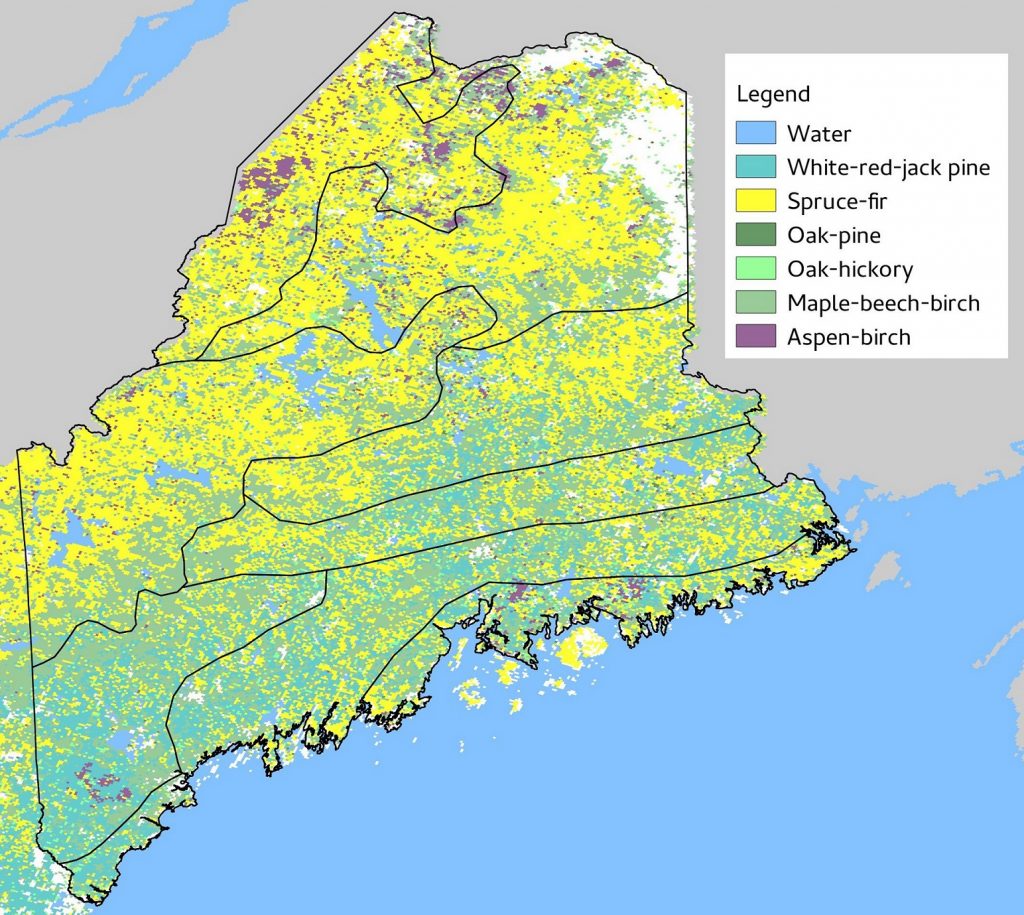
Figure 1. Maine climate zones and associated forest types
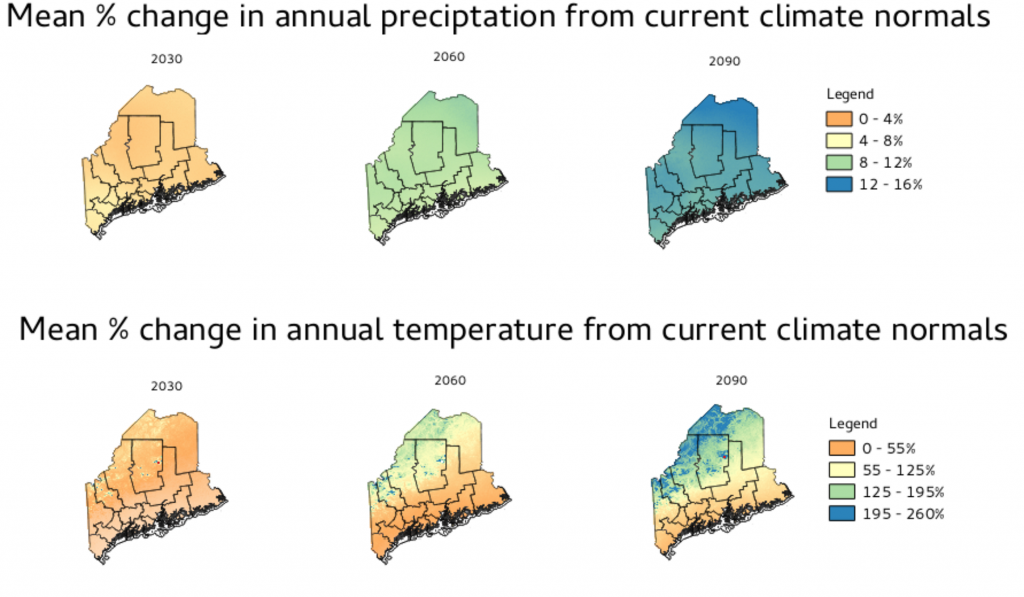
Figure 2. Projected relative changes in mean annual precipitation and temperature using an ensemble of 17 CMIP5 model projections for the RCP85 scenario downscaled to a 1 km resolution.
The State of Maine’s Carbon Budget
Fall 2024: FCCI Researchers released Version 2 of the Current State of Maine’s Carbon Budget, ca. 2021. In addition to the budget, the Carbon Budget website provides a downloadable 2-page fact sheet, extended details on how the budget was calculated, and access to the calculations. Understanding the carbon budget is required for understanding human impacts on climate, guiding mitigation strategies, and informing future projections.
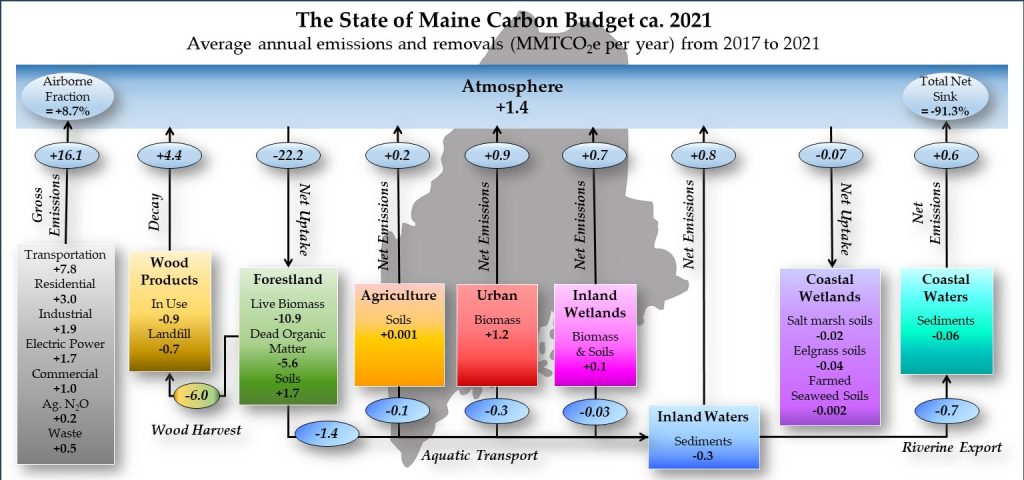
Science and Practice: Addressing Forest Climate Change in Maine Webinar & Field Tour Series
FCCI was home to CRSF’s forest climate change webinar and field tour series from 2020-2024. The series focused on climate change, adaptation and resilience of Maine’s forest types, active management strategies, wildlife/bio-habitat concerns, management tools, pests & pathogens, and long-term forest research. Panelists included researchers, scientists, and stakeholders who addressed issues of climate change and how it is influencing Maine’s forests and forest economy. The series featured 1-hour topic specific webinars followed by half-day field tours. Please visit the series webpage for more information on topics and links to previous meeting materials.
See all the Addressing Forest Climate Change in Maine webinars on our CRSF YouTube channel.
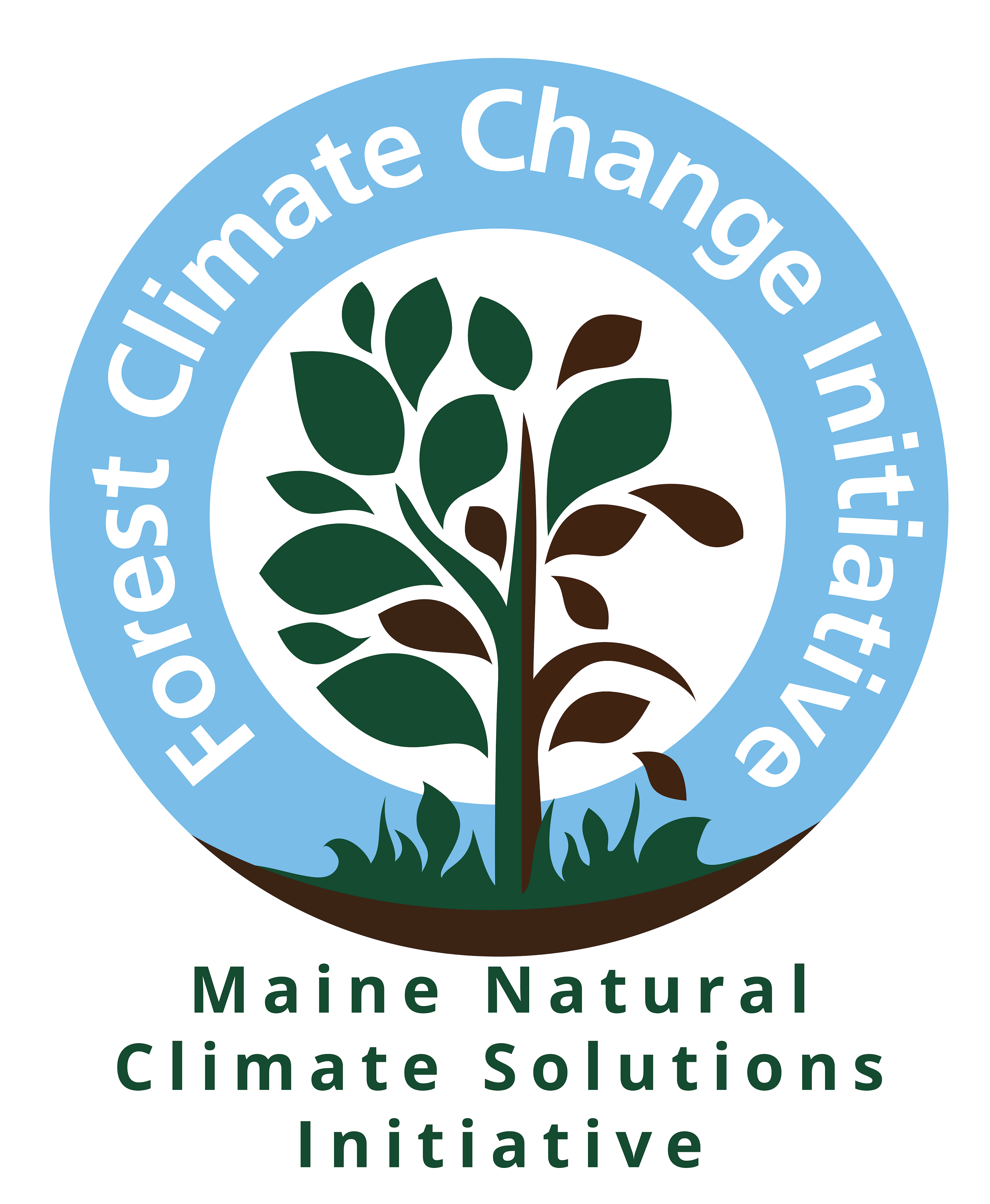
A project to assess potential natural climate solutions (NCS) practices and their cost/benefits across Maine.
